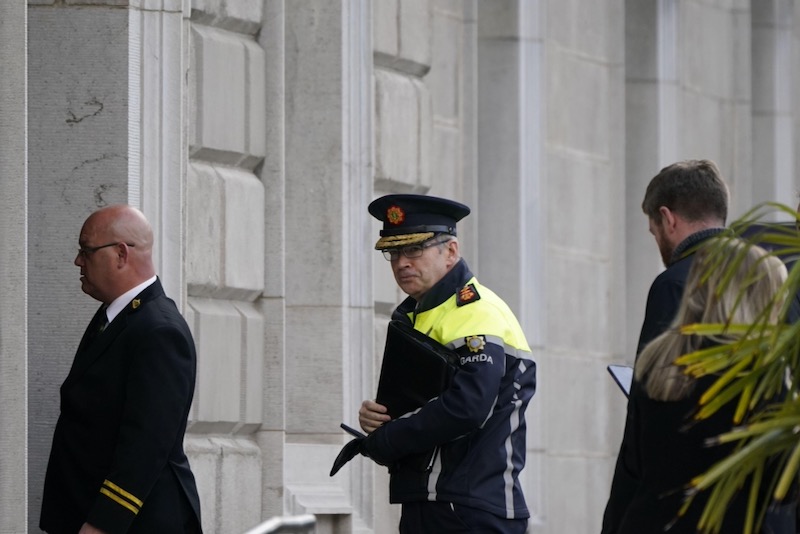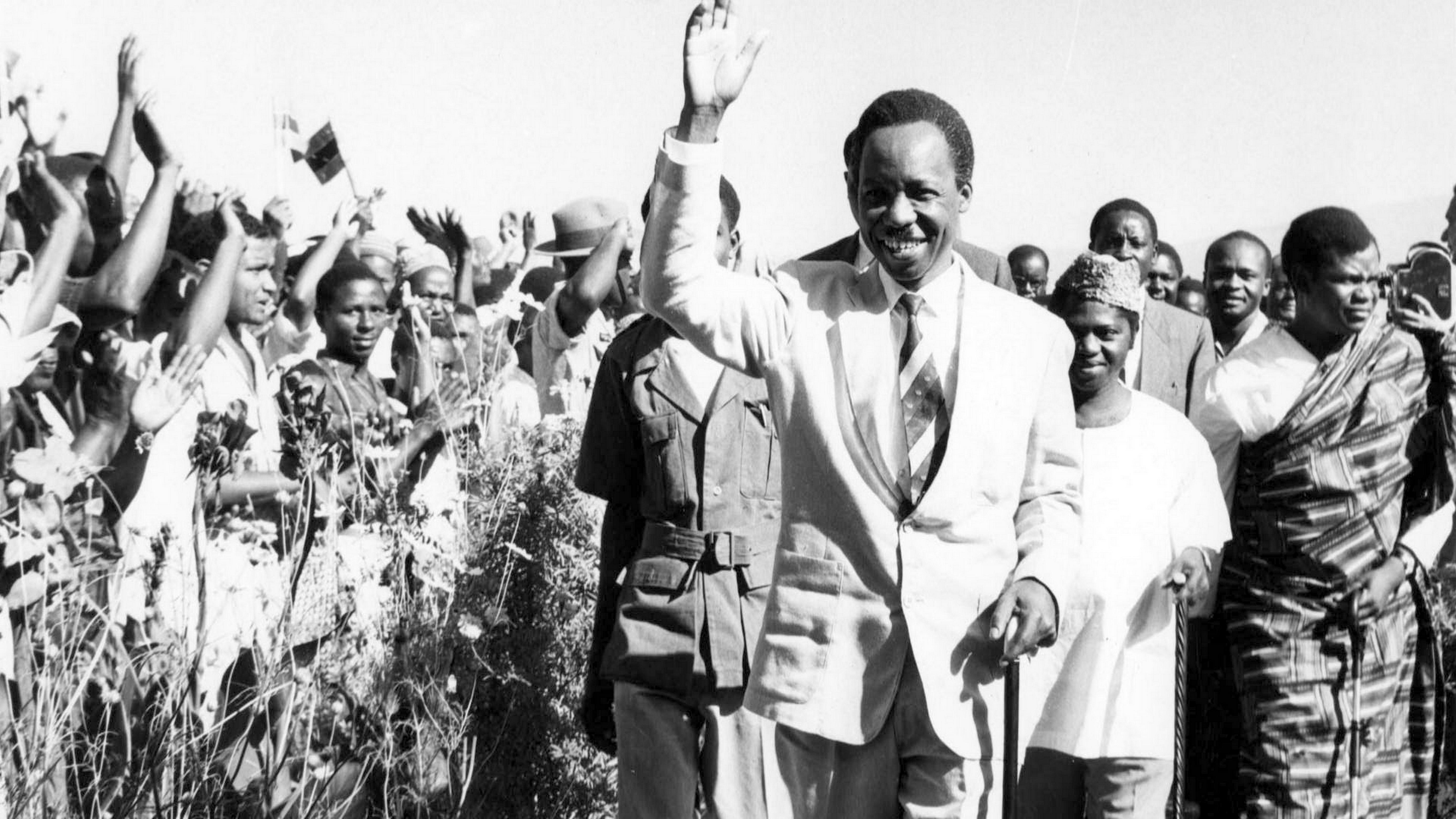The Church in Tanzania is collecting information to pursue the canonisation of Julius Kambarage Nyerere, the country’s first president.
A tribunal led by Archbishop Jude Thaddeus Ruwa’ichi of Dar-es-Salaam launched the process on 16 November, inviting Catholics to submit “any information – both favourable or unfavourable – regarding the life and heroic virtues of [Nyerere] as a Catholic lay faithful and father of a family, as well as his reputation for holiness and intercessory power”.
Nyerere died in 1999 and was declared a Servant of God by Pope Benedict XVI in 2005.
Bishops in the Democratic Republic of Congo (DRC) appealed for peace as the country goes to the polls on 20 December. In a statement issued on 22 November, the National Episcopal Conference of Congo urged vigilance during the vote “to protect our vote” after previous elections were marred by violence.
“The elections give us the power to renew confidence in the leaders of the institutions which have served the country well, but also to sanction all those who have mismanaged by serving their own interests,” they said. “Faced with new candidates, let us favour objective criteria of competence and moral probity.” They also called for support for election observers.
In a pastoral letter for Advent issued on 21 November, Zimbabwe’s bishops called for an end to the threat of violence which followed the August elections that controversially returned the incumbent President Emmerson Mnangagwa.
“In the post-election period most of the gains that we had made – the promotion of peace, diffusing the tensions between various political players and their supporters – were lost,” said the bishops.
They condemned the pursuit of retribution against political rivals and opposition voters and the recall of elected representatives. “The nation has been thrust into a new form of violence: people rightfully elected, can wantonly be recalled,” they said.
Noting rising crime rates, particularly in armed robberies and domestic violence, they appealed “to our political leaders to denounce politically motivated violence” and to legal authorities “to bring perpetrators of political violence to book”.
Burundi’s bishops welcomed the establishment last month of a joint commission and six subcommittees to develop lasting cooperation between the Bishops’ Conference of Burundi and the government on issues of common interest.
The conference president, Archbishop Bonaventure Nahimana of Gitega, said last week that “this is a further step with which the state recognises the importance of the Church”.
Education, healthcare and support for the poor and prisoners are among the areas of discussion, as the Church runs an extensive network of kindergartens, schools, healthcare facilities and hospitals in Burundi, and is currently considering opening a Catholic university.
The Jesuit Refugee Service (JRS) said it “strongly condemns” Pakistan’s decision to deport Afghans from its territory from 1 November, reporting that thousands of Afghans arriving at the border have limited access to humanitarian assistance and are threatened by political turmoil in Afghanistan.
“The numbers of Afghan returnees are huge at the borders, and this will be a significant disaster for Afghanistan with the onset of winter and already a disastrous situation in the country,” said Sandesh Gonsalves of JRS Afghanistan, adding, “like any displaced person, Afghans must be afforded the right to seek asylum and the dignity of voluntary return rather than forced deportation”.
Afghans remaining in Pakistan have accused the authorities of indiscriminate arrests, ignoring valid documents and extorting money. Until last month, Pakistan hosted more than 1.4 million registered Afghans and hundreds of thousands more unregistered, some having arrived decades ago and others after the Taliban takeover of Afghanistan in 2021.
Human rights organisations called on Filipino lawmakers to support resolutions in Congress requiring President Ferdinand Marcos Jr to cooperate with the International Criminal Court investigation into killings during the anti-drugs war pursued by former president Rodrigo Duterte.
Marcos has maintained his opposition to an international investigation as part of his efforts to hold together his political alliance, which includes Sara Duterte, the former president’s daughter, and his vice-president. “It’s not right for outsiders to tell us who to investigate, or who the police will arrest or detain,” he said last week.
Duterte’s war, strongly opposed by the Church and rights organisations, claimed more than 12,000 lives and saw mass arrests. Last month, Bishop Pablo Virgilio David of Kalookan, president of the Filipino bishops’ conference, condemned the delay in releasing the prominent political prisoner and former senator Leila De Lima, a fierce critic of the “war on drugs”.
The Holy See’s Secretary for Relations with States, Archbishop Paul Gallagher, celebrated Mass at South Korea’s Seosumun Shrine to commemorate 60 years of the Vatican’s diplomatic relations with Seoul. In his homily on 21 November, Archbishop Gallagher invited those present to “treasure this rich heritage and continue the legacy of those who, under the banner of the Catholic faith, laid the foundation for our enduring commitment to society”.
Archbishop Peter Soon-taek Chung of Seoul, president of the Korean Episcopal Conference, attended the Mass with other representatives of the Church and civil authorities. The Seosomun Shrine commemorates early Korean martyrs, especially the 103 martyrs canonised in 1984. “The Mass at Seosomun Shrine History Museum served as a poignant reminder of the sacrifices made by these martyrs and the resilience of the Korean Catholic community,” said a statement from the Archdiocese of Seoul.
Bishop Robert Barron of Winona-Rochester, Minnesota, expressed “frank disagreement” with the final document from the Synod on Syndality, in a reflection published last week.
He criticised its argument that “advances in our scientific understanding will require a rethinking of our sexual teaching” and said he found it “troubling” to hear the language of synodality employed by some German bishops.
John Cavadini, director of the McGrath Institute for Church Life at the University of Notre Dame has called for “a deeper theology of synodality”.
Writing in the National Catholic Register, Cavadini noted that the synthesis report from the October gathering in Rome aimed at “implementing what the [Second Vatican] Council taught about the Church as Mystery and People of God, called to holiness”. He noted, however, that “the title ‘People of God’ is featured prominently throughout the document, while the Church as ‘Mystery,’ initially mentioned above, is rarely, if ever, mentioned again – though it is an equally prominent feature of Lumen Gentium”.
Cavadini, who headed Notre Dame’s theology department for many years, worried that an over-emphasis on baptism in shaping the synodal path – “Baptism is at the root of the principle of solidarity,” the report said – risked diminishing the centrality of the Eucharist to ecclesiology and the differentiating of ordained from non-ordained ministries.
“Without explicit clarification,” he said, “the document seems to teeter on a Protestant understanding of ministry, where all ministry flows from baptism, and a correspondingly Protestant ecclesiology that is essentially baptismal and only secondarily Eucharistic, if at all.”
Michael Voris, the founder and president of the media outlet Church Militant, has resigned from the organisation. In a video posted on social media, he said that he had violated the “morality clause” of his contract.
Catholic-run hospitals in Illinois and Wisconsin are removing wooden and metal crucifixes from emergency departments and patient rooms to prevent patients using them to attack staff. Hospital Sisters Health System said safer replacements will be installed, adding that, “we continue to be a Franciscan-centred healthcare system in all policies and care delivery”.
The Hospital Sisters of St Francis, which operates 15 hospitals, said the decision comes in response to “the general increase in healthcare workers experiencing workplace violence”.
Argentina’s President-elect Javier Milei spoke to Pope Francis last week following his election victory, despite previously describing him as an “imbecile” and “the representative of the evil one on earth”.
The Vatican confirmed that a conversation had taken place on 21 November, and Milei’s office later issued a statement saying: “We are pleased to announced that His Holiness, Pope Francis, spoke with our future president to congratulate him and to express wishes for the unity and progress of our country.” It also said the Pope had promised to send Milei a rosary as a gift and to visit Argentina “very soon”.
During the election campaign Milei insisted he had apologised for insulting Francis. Ahead of the second round of voting against the Peronist Sergio Massa (who had publicly invited the Pope to Argentina), he said: “If I have to ask for his forgiveness, I’ll do it. I even invite him to come to Argentina. We will receive him with all honours.”
The Argentine bishops sent Francis a message from their autumn plenary meeting last month “to express our desire that you visit us soon”.
Jesuits in El Salvador and around the world marked the thirty-fourth anniversary of the martyrdom of six Jesuit priests and their housekeeper and daughter on 16 November 1989. Soldiers broke into the Central American University campus in San Salvador, where the Jesuits lived, assassinating the university’s rector Ignacio Ellacuría SJ and seven others.
In August, the Archbishop of San Salvador Archbishop José Luis Escobar Alas announced in August that a canonisation process has begun for some of the martyrs killed in the country’s bloody civil war, Fr Ellacuría among them.
On the anniversary Jesuit social media quoted Fr Ellacuria’s words: “Do everything possible so that liberty is victorious over oppression, justice over injustice, love over hate.” The Archbishop Romero Trust has made “What Lucia Saw”, a factual dramatisation of the killings, free-to-view on its website.
Aid to the Church in Need marked “Red Week” on 19-26 November, with buildings and monuments across the world lit up red to commemorate persecuted Christians in the Middle East, Asia, Latin America, and Africa.
The Christ the Redeemer statue in Rio de Janeiro, several castles in Slovakia, the Austrian Parliament building, and St Patrick’s Cathedral in Melbourne, Australia, were some of the buildings illuminated, while 13 churches, basilicas and cathedrals across France – including the Basilica of Sacré-Coeur in Montmartre – were lit up in red on Wednesday 22 November.
In Italy, the building of the Chamber of Representatives and the Colosseum in Rome were coloured red. More than 150 cathedrals, churches, monasteries, monuments and public buildings in the Netherlands took part, as did Regensburg Cathedral in Germany.
A Christian actress from China seeking asylum in Spain has been granted leave to remain. Li Yan Li, 29, was due to be deported after the Spanish government rejected an initial asylum appeal, but she was removed from the flight back to China after self-harming and insisting her life would be in danger there.
The Catholic lawyers’ association Abogados Cristianos then made a second asylum request for the actress, submitting a petition in support of her request signed by more than 60,0000 people to the Spanish interior ministry. Li Yan Li left the asylum room at Madrid’s Barajas Airport on 22 November after four weeks held there.
Polonia Castellanos of Abogados Cristianos said: “We have managed to save a woman who is being persecuted by the Chinese Communist regime because of one fact alone: she is Christian.” She added: “The government’s double standards with regard to some foreigners and not others is surprising.”
Thieves who stole a tabernacle holding the Eucharist and a chalice – as well as a chasuble, a corporal and a liturgical book – from a hospital chapel in Spain have repented and returned the items.
The chaplain of Quirón Hospital in Torrevieja discovered the theft on 5 November. The Bishop of Orihuela-Alicante José Ignacio Munilla urged local parishes and religious communities to “make acts of reparation for the sacrilege.” Last week, he announced on Radio Maria Spain that the thieves had returned the stolen property after repenting during the Sacrament of Confession.
“We asked for the gift of conversion for those who had committed that sacrilege and today I am going to give you good news. Those prayers have been heard,” said Bishop Munilla. “The Church will obviously preserve under the sacramental seal the identities of those who sinned.”



 Loading ...
Loading ...